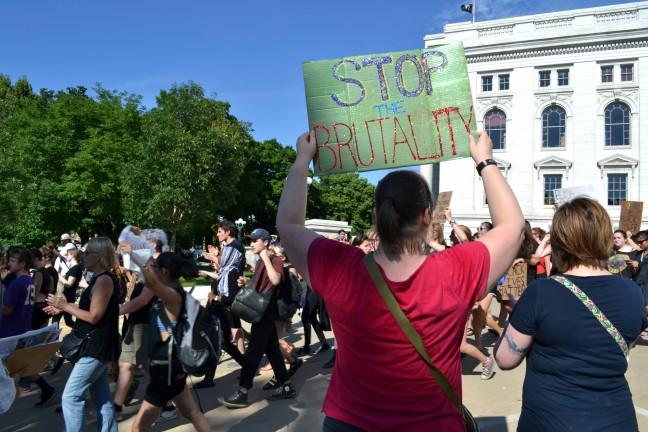Despite the many uncertainties in life during the pandemic, it makes one thing about the United States undoubtedly true for those who deemed it disputable before – racial disparities in this country set the tone for every major event. Public health is no exception. It ravages socially disadvantaged communities, disproportionately affecting those with preexisting health conditions, fewer healthcare options and low-wage hourly jobs. In Milwaukee, the health concerns lean further into urban black communities, a testament to the unsolved racism and the systematic stronghold this country revels in.
Repeatedly deemed as the most segregated city in the United States for its mass discrepancies in employment, education and incarceration, Milwaukee saw its first deaths flood in weeks ago, among the predominantly African American community of the north side. Cases continue to rise there at alarmingly concentrated rates compared to the rest of Milwaukee. The trend is not uncommon across the country and hardly the first time in United States history where minorities carry a greater degree of danger in the face of epidemic.
As pandemic uproots lives, it’s important to make positive lifestyle changes
The patterns span large cities like New Orleans, New York City and Detroit. The racial disparities presented themselves identically four decades ago, during the AIDS epidemic. When not completely ignored by the government and greater population, the higher death rates among minorities are quietly accepted. With every other facet of inequity, it seems ignorant to expect that anything would be different during a global health crisis. These issues present themselves most evidently for several reasons:
Environmental racism presents a problem for black communities in its escalation of fatalities, due to predisposed health conditions. African American populations in the United States suffer from a greater likelihood to develop asthma, diabetes, and kidney disease, all conditions known to increase the effects of coronavirus from an inconvenience or temporary sickness, to a fatality. The respiratory illnesses arise from the closer proximity to large quantities of pollution in fence-line communities, where many are forced to live not just among their neighbors, but toxic oil and gas facilities. These are the same communities of Milwaukee that are deemed food deserts, vacant of proper grocery stores, transportation and resources to keep people safe. For an airborne disease that attacks the respiratory system, habiting these communities is just short of a death sentence.
The structure of healthcare in Milwaukee furthers the disenfranchisement of black communities, where hospitals in neighborhoods housing people of color are more likely to shut down and fewer people have health insurance. This curves a likelihood to get medical treatment unless the condition reaches a point of emergency. As numbers of cases rise, particularly in high concentrations in urban areas, emergency rooms grow increasingly congested and unable to care for the influx of patients. Even then, racial bias may keep people from receiving the care they need.
Yet again, politics prioritized ahead of public’s safety in Wisconsin
Black Americans are more likely to possess hourly and lower-wage jobs than white Americans with high rates of touch exposure to the public. However, the fear of losing work propels unsafe conditions for those in desperate need of steady income, using public transportation and existing in densely populated areas more likely to be permeated by the virus. Those with the option to work will likely choose to as unemployment continues to soar, putting themselves, and their communities at risk, merely in an attempt to get by financially. There seems to be no winning solution.
The true culprit of this undeniable failure and tragedy, like so many things, circles back to the systematic blockage of the United States and its cities. Milwaukee is no different. Those who say the virus does not discriminate have proven themselves horribly wrong. Devastatingly, these figures and truths shock so few, only lifting the thinly-veiled racism and revealing the shadow of century-old redlining rampaging this city. Mayor Tom Barrett is making attempts to get proper information regarding the illness and how to slow its spread and provide free testing for the high-risk and uninsured of the north side, but much of the damage is done.
There isn’t any single solution, however, access to education for those unaware of the deadliness of the pandemic, and legislation to push rent forgiveness and the stimulation package may mitigate some desperation to work and mass exposure for those most vulnerable. If nothing else, this is a wakeup call for Milwaukee to protect its people and tend to the racial disparities that have defined the city for decades.
Kelli Smith ([email protected]) is a junior majoring in psychology.





















